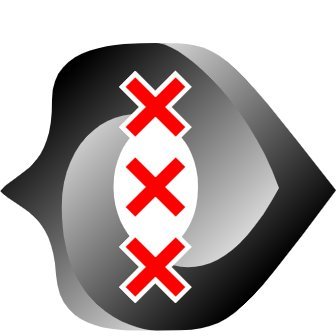Balisage: where serious markup practitioners and theoreticians meet every summer. If you are happy to be the person in your project who understands the angle brackets and stuff, then you are a markup geek and Balisage is the place for you. Even if you are NOT a markup geek, if you find it instructive to spend time with them now and then, you will enjoy Balisage.
Balisage:
The Markup Conference
Virtual. Online. Technical. Interactive.
4 - 8 August 2025
Balisage is an annual conference devoted to descriptive markup, how to use it to best effect, and what it means for technology, access to information, and the preservation of information for the future.
Balisage Conference News
2025 Preliminary Program Announced
The program for the annual geekfest in August is now available: Preliminary Program: Balisage 2025 Time to Register!
March 2025
Register for 2025: Registration
Speak:
- Submit a late-breaking Late-breaking
- Give an Open Mike talk Open Microphone
- Offer an excore presentation (as a substitutte when we lose a speaker) Encore Presentations
Sponsor Balisage! Sponsorship Packages
Important Dates:
- 19 May 2025 — Speakers notified
- 6 June 2025 — Late-breaking submissions due
- 16 June 2025 — Late-breaking speakers notified
- 11 July 2025 — Final papers due from presenters of peer reviewed papers
- 11 July 2025 — Short paper or slide summary due from presenters of late-breaking papers
- 4 – 8 August 2025 — Virtual, live Balisage: The Markup Conference
Balisage 2025 has developer and implementor insights, case studies, and new ideas in markup:
- Maintainable XSLT conversions
- Processing overlap and discontinuity with a new type of markup language/processor
- Introducing undergraduates to Invisible XML
- Why the Semantic Web failed
- Versioning in XML for a content management system
- Schematron as an interface to XSLT
- Processing XQuery using custom module URI resolvers
- Using XML in prompts to avoid LLM hallucinations
- Processing historical narrative recipes in a modern style
- Native Python support for XML
Balisage brings together markup developers, document architects, librarians, archivists, XML practitioners, academics, XSLT and XQuery programmers, implementers of XSLT and XQuery engines and other markup-related software, JSON users, standards writers, industrial researchers, government and NGO staff, practitioners, consultants: the world's greatest concentration of markup theorists.
If you work with markup or marked up data and want to learn from others who also do so, Balisage is for you.
Unfamiliar with Balisage? To get a taste of Balisage, browse the Proceedings' Master Topics List by clicking on the "+" to expand the Concepts, Specifications, or Processes topics lists.
People involved with Balisage
The people making Balisage include markup theoreticians and practitioners, data modelers, designers, architects, and both aficionados and deep thinkers. We work as software developers, system architects, academics, integrators, publishers, librarians, data miners, lexicographers, archivists, document managers, standards developers, and programmers.
Conference Committee
- Chair
- B. Tommie Usdin, Mulberry Technologies
- Co-Chairs
- Deborah A. Lapeyre, Mulberry Technologies
- James David Mason
- Norman Walsh, Saxonica
Advisory Board
Syd Bauman, Northeastern University · Jeff Beck, National Library of Medicine · David J Birnbaum, University of Pittsburgh · Jon Bosak · Robin Cover, OASIS · Steve DeRose, Independent Consultant · Bob DuCharme, CCRi · Patrick Durusau · Eric Freese, TopQuadrant · Eduardo Gutentag · G. Ken Holman, Crane Softwrights · Sam Hunting · Michael Kay, Saxonica · David A. Lee, Nexstra, Inc · Chris Lilley, World Wide Web Consortium · Yves Marcoux, Université de Montréal · Sean McGrath, Propylon · Mary McRae, Orbis Technologies · Steven R. Newcomb, Coolheads Consulting · Wendell Piez, Piez Consulting Services · Ari Nordström, Creative Words · Liam Quin, Delightful Computing · Allen H. Renear, University of Illinois at Urbana-Champaign · Jeni Tennison, Jeni Tennison Consulting · Henry S. Thompson, University of Edinburgh · Fabio Vitali, University of Bologna · Lauren Wood








